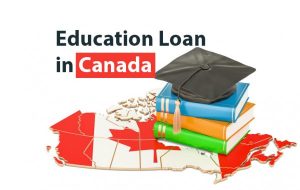Are you an ambitious student looking to pursue your dreams of studying in Canada, but feeling overwhelmed by the financial burden? Look no further! We have got exciting news for you. In this blog post, we will unveil the ultimate solution – International Student Loans for Studying in Canada.
Yes, that’s right! With these loans specially designed for international students like yourself, you can now turn your dreams into a reality without worrying about funding.
So buckle up and get ready to embark on a thrilling journey toward academic excellence and unforgettable experiences in the breathtaking land of maple leaves and endless opportunities!

Introduction to International Student Loans for Studying in Canada
Contents
As an international student in Canada, you may be wondering if you are eligible for financial aid and loans to help pay for your education. The good news is that there are several options available to you, including international student loans.
To be eligible for an international student loan, you must first meet the general eligibility requirements, which include being a citizen or permanent resident of Canada and having a valid study permit. You will also need to demonstrate financial need and be enrolled in a full-time program at an eligible Canadian post-secondary institution.
Once you have met the general eligibility requirements, you can apply for an international student loan through the government’s CanLearn website. The application process is similar to the process for applying for a Canadian student loan, and you will be required to provide proof of your enrollment as well as your financial information.
If you are approved for an international student loan, the funds will be disbursed directly to your school and applied toward your tuition and other educational expenses. You will then be responsible for repaying the loan according to the terms of your loan agreement.
It is important to note that international student loans are not available from all lenders, and some private lenders may have additional eligibility requirements. However, many reputable lenders offer competitive rates and terms on international student loans, so it is worth shopping around to find the best deal.
Types of Loans Available
There are many different types of loans available to international students studying in Canada. Some of the most common include:
- Federal Loans: These loans are offered by the Canadian government and can be used for tuition, living expenses, and other educational costs.
- Provincial Loans: These loans are offered by provincial governments and can be used for tuition, living expenses, and other educational costs.
- Private Loans: These loans are offered by banks, credit unions, and other private lenders. They can be used for tuition, living expenses, and other educational costs.
- Scholarships: Scholarships are typically awarded based on academic merit or financial need. They can be used for tuition, living expenses, and other educational costs.
- Grants: Grants are typically awarded based on financial need. They can be used for tuition, living expenses, and other educational costs.
Eligibility Requirements

To be eligible for an international student loan for studying in Canada, you must:
- Be a Canadian citizen or permanent resident
- Be enrolled as a full-time student at a designated Canadian post-secondary institution
- Be studying in a program that leads to a degree, diploma, or certificate
- Have a satisfactory academic record
- Demonstrate financial need
In addition, you must not:
- Have defaulted on any previous student loans
- Owe money on any previous student loans
- Receive funding from another source that covers your total costs of attendance
The Application Process for International Student Loans
The process for applying for an international student loan is similar to the process for applying for a domestic student loan. However, there are a few key differences that you should be aware of.
- The First difference is that you will need a cosigner for your loan. A cosigner is someone who agrees to repay your loan if you are unable to do so. This is important because it allows lenders to feel more confident about lending money to students who are studying in a foreign country.
- The Second difference is that you may be required to provide additional documentation when you apply for a loan. This documentation can include proof of your enrollment at your school, your financial aid award letter, and your passport.
- The Third difference is that the interest rates on international student loans are often higher than the interest rates on domestic student loans. This is because lenders perceive borrowers who are studying in a foreign country as being at higher risk.
If you are interested in applying for an international student loan, we suggest that you start by doing some research online. Many private lenders offer these loans, and each one has different terms and conditions. We recommend that you compare several different lenders before choosing one to work with.
Costs of Studying Abroad & How to Finance Them
Studying abroad can be a great experience, but it comes with its own set of challenges – one of which is how to finance your education. The good news is that there are plenty of options for international students looking to study in Canada, including loans. Here’s a look at the costs of studying abroad and how to finance them:
- Tuition Fees: One of the biggest expenses you’ll face when studying abroad is tuition fees. These can vary widely depending on the institution and program you’re interested in, but you can expect to pay anywhere from $15,000 to $30,000 per year.
- Living Expenses: In addition to tuition, you’ll also need to consider other factors in living expenses. This includes things like food, housing, transportation, and other day-to-day costs. You can expect to spend around $10,000 per year on living expenses.
- Other Expenses: There are also other expenses to consider when studying abroad, such as travel costs and visa fees. You should budget around $2,000 for these additional expenses.
- Total Cost of Studying Abroad: So how much does it all cost? When you factor in tuition, living expenses, and other miscellaneous costs, you’re looking at an average total cost of around $27,000 per year to study abroad in Canada.
Tips on Finding the Right International Student Loan for You

If you’re looking for an international student loan to help finance your studies in Canada, there are a few things to keep in mind. Here are some tips on finding the right loan for you:
- Shop around and compare loans from different lenders. There are many different options out there, so it’s important to compare rates, terms, and conditions before picking one.
- Make sure the loan you choose is certified by the Canadian government. This will ensure that you’re getting a quality loan with favorable terms.
- Consider both private and public loans. There are benefits and drawbacks to both, so it’s important to weigh your options carefully before deciding which route to go.
- Be aware of the repayment terms of the loan you choose. Make sure you can comfortably make the payments each month before taking on any debt.
- Ask about deferment or forbearance options in case you run into financial difficulties during repayment. These options can help make repaying your loan easier if you hit a rough patch down the road.
Following these tips will help you find the right international student loan for your needs and give you peace of mind as you pursue your studies in Canada!
Other Sources of Funding for International Students
In addition to the government loans discussed above, there are a few other sources of funding available to international students studying in Canada.
- One option is to apply for a private student loan through a bank or other financial institution. These loans are not backed by the government and typically have higher interest rates, but may be an option for students who do not qualify for government loans or who need additional funding.
- Another possibility is to look into scholarships and bursaries offered by various organizations. Many of these are targeted at specific groups of students, such as those with financial needs or from underrepresented backgrounds.
- Some schools may offer their funding programs for international students. Be sure to check with your school’s financial aid office to see what options may be available to you.
Conclusion
International student loans for studying in Canada provide vital financial support to students who come from outside the country. These loans can help international students cover their tuition fees, living costs, and other expenses associated with studying abroad.
With various loan programs available, it is important to do your research and find the best option for you. By taking advantage of these loan options, international students can make their dreams of studying in Canada a reality.